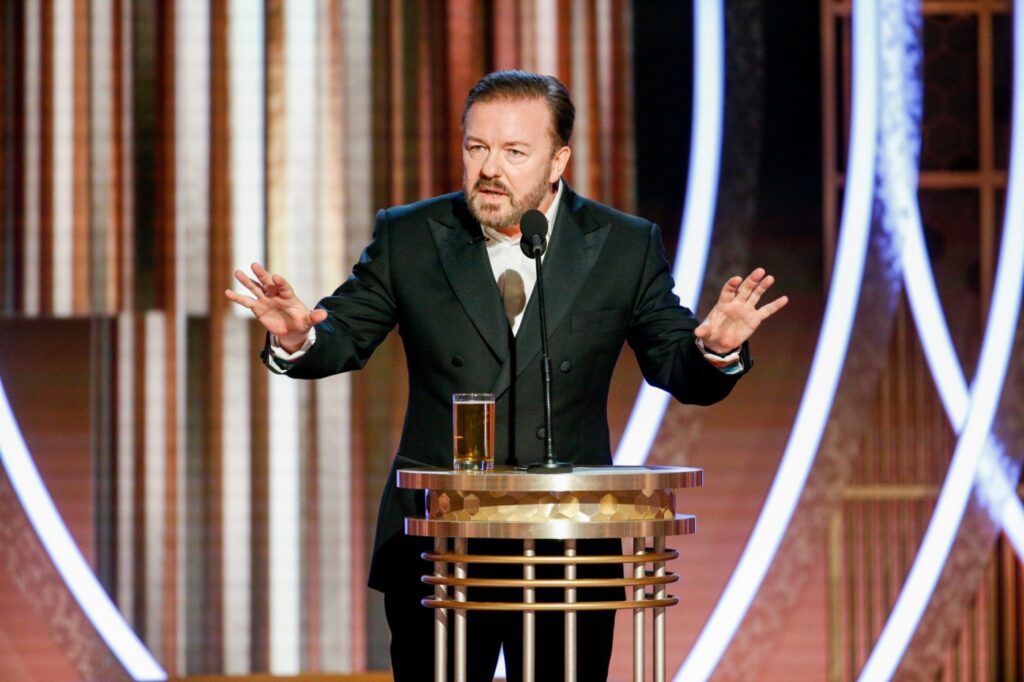
In the past year, many artists got de-platformed, fired or canceled on social media because of the content of their work. Dave Chappelle, John Cleese, Gina Carano are some of the names that come to mind.
Most recently, Ricky Gervais’ new Netflix special has stirred up a swift backlash over his use of shock humor at the expense of trans women. Alejandra Caraballo, an instructor at Harvard Law School’s Cyberlaw Clinic, called for normalizing “bullying Ricky Gervais” because of the content of his standup in her latest tweet.
Of course, everyone has the right to criticize artistic expression that they don’t like. However, in the marketplace of arts, the artists are empowered with freedom of artistic expression, even when their work is offensive, insulting, outrageous or even objectively ugly. As I.J. Oosthuizen and C.J. Russo write in the South African Journal of Education, “[freedom of artistic expression] is a small price to pay for the liberty and diversity that form the foundation of a free society.”
As a Gen-Z, I’m blessed to live in a world with the internet where most of the content created by mankind is just a click away. This access, coupled with the critical thinking tools that we as a generation have developed in the past two decades of our lives, has given us a level of freedom that none of our ancestors would fathom.
Yet it almost feels like this freedom is threatened daily by the censorship fueled by the ideologically woke cancel culture. This minority doesn’t just want to criticize art they disagree with, it wants to limit the content that the majority may want to engage with.
In the marketplace of arts, just like the marketplace of ideas, the audience must hold the power to pick and choose which content they want to engage with, and a minority should not be censoring that content. Indeed, censorship and criticism are distinguishable. In fact, the marketplace of arts encourages criticism, but that is distinct from allowing the monopoly of a certain group over what content is OK and what is not OK.
Today, with the presence of technologies, individuals can be intimately engaged in the marketplace of arts; they are free to praise, object to or ignore certain art. The artwork with the largest appeal to the community will attract popularity organically. Some other artistic expressions will generate a cult following. And the least popular ones will eventually fail and fade.
Not every demographic has the same value system and preferences when it comes to artistic work. Similarly, a joke that offends a woke person is not necessarily offensive to someone else. Appealing to multiple demographic groups is the lifeblood of social media platforms and streaming services. Therefore, if they give into the woke censorship mindset, they will lose users and the revenue generated by the subscriptions.
There is some good news for the marketplace of arts.
Related Articles
California needs budget reform to make most of surpluses
Newsom budget at last recognizes one housing reality
As drought persists, water rights on agenda
Memorial Day: Political Cartoons
Contrary to the Founders’ intentions, guns run the American game
Netflix recently issued a corporate memo indicating to the employees that the platform will not censor or end partnerships with entertainers just because some staffers are personally offended by the content. “If you’d find it hard to support our content breadth, Netflix may not be the best place for you,” reads the memo, which is part of a new “artistic expression” section of the company’s policy, according to Variety. The updated internal memo was released several months after Dave Chapelle’s 70-minute performance on the platform outraged some employees who claimed his latest special on the platform, “The Closer,” was “transphobic.”
Netflix has a solution for the employees who can’t work on projects they “perceive to be harmful”: look for another job, because the platform will not silence artistic voices to appease the woke employees.
Creativity doesn’t care if you’re mad. Digital and print media companies dedicated to the arts shouldn’t either.
Tahmineh Dehbozorgi is a columnist for Southern California News Group and a student at George Washington University Law School.
